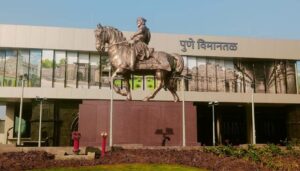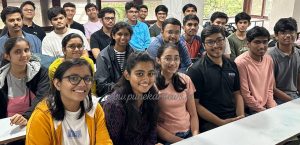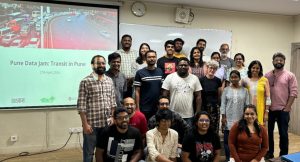Indian parliamentarians discuss the need for united action against TB
New Delhi, August 09, 2016: Members of Parliament, representatives from the Ministry of Health and Family Welfare, USAID, The Union and Civil Society Organisations met on August 8, 2016 in New Delhi in a consultation to discuss urgent need for united action against TB.
This meeting was a follow up session to the deliberations held last year, which recognized the need to build a sustained political response to eradicate TB in India. This year, the focus was to seek Parliamentarians commitment for the formation of an India TB Caucus, which would catalyse a truly robust and sustainable political response to this global disease. The meeting was chaired by Prof. P.J. Kurien, Deputy Chairman, Rajya Sabha (Vice-Chairman, AFPPD Bangkok & Chairman, IAPPD) and attended by the Members of Parliament (both Rajya Sabha and Lok Sabha) from the states including Bihar, Chhattisgarh, Gujarat, Himachal Pradesh, Jharkhand, Karnataka, Kerala, Maharashtra, Punjab, Rajasthan, Telengana, Uttrakhand and West Bengal. From the government Mr. CK Misra, Secretary Health, MoHFW and Dr. Sunil Khaparde, DDG TB, Central TB Division, MoHFW apprised the Members of Parliament on the TB situation in India and the effort being made by the government.
For many years, tuberculosis, and more recently MDR-TB, has imposed a significant physical, emotional and economic burden on patients, their families and the society. As per the WHO Global TB Report – 2015, the estimated number of MDR-TB cases in 2014 among notified pulmonary TB cases were 71,000. MDR-TB patients are put on treatment for at least two years and are required to take approximately 12,150 tablets during the course of the treatment. The strong drugs lead to multiple side effects like vomiting, joint pain, severe gastrointestinal problems, deafness, depression and suicidal tendencies. Also, stigma and lack of social support are a major challenge in treatment completion and hence increased awareness of the disease can help in prevention, early detection, treatment and care.
Mr. C K Misra, Secretary Health, MoHFW, GoI said, “TB is a time bomb that is ticking and is ready to explode. Access to quality treatment and reducing the incidence of TB and especially MDR-TB are areas that need to be addressed urgently. The government is working towards this by changing the treatment method to daily regimen starting in 104 districts in Maharashtra, Himachal Pradesh, Sikkim, Kerala and Bihar and will later be provided all over the country. Under the TB programme more than anything else, we need to forge partnerships to reach everyone. We look towards the honourable Members of Parliament gathered here to help create awareness about tuberculosis in their constituencies.’’
Prof. P.J. Kurien, Deputy Chairman, Rajya Sabha noted, “Many people who have TB do not know they are suffering from this disease. The parliamentarians have a major role to play in the fight against TB, as they can reach out to people in their constituencies. United efforts in HIV prevention have reduced incidences and similar action is needed to win the battle against this age-old disease with greater speed.”
During the meeting the parliamentarians deliberated on key issues of treatment and what could be done to make India TB-Free:
- Smt. Viplove Thakur (MP, Rajya Sabha), said, “Given the high burden of TB in the country, the role of parliamentarians becomes particularly important. We, as policy makers, have engaged with health issues in the past and are willing to engage on the issue of TB and to push for effective policy and program decisions.”
- Emphasizing on the importance of interventions to prevent further transmission of TB, Shri. K.C. Ramamurthy(MP, Rajya Sabha) said, “Our role as MPs is critical to policy formation. We should act as independent reviewers of government efforts in the area of health and fully engage in the campaign towards making India TB-Free.” Dr. Prabhakar Kore (MP, Rajya Sabha) expressed concern on the increasing cases of Pediatric TB and emphasized the need to devise dedicated strategies to handle stigma and discrimination associated with the disease.
- Shri. Narayan Lal Panchariya (MP, Rajya Sabha) said, ‘’The role to be played by parliamentarians is not only devising policies for a TB-Free India, but also to contribute by utilizing MPLAD/ SAGY funds for making our constituencies TB-Free. This can be done by rolling out interventions for increased awareness, access to TB treatment and care, and improved service delivery in the public sector.”
- Smt. Kahkashan Parveen (MP, Rajya Sabha) said, “The socio-economic impact of TB is much bigger than the clinical impact of the disease. The need to provide nutritional and other support to the TB patient and family is equally important.”
- Smt. Chhaya Verma (MP, Rajya Sabha) and Shri. Pradeep Tamta (MP, Lok Sabha) said, “Reaching the poor and vulnerable in tribal regions and difficult to reach areas is a challenge. TB interventions should lay emphasis on facilitating access to diagnostic and treatment services in the public sector.”
- Shri. Shamsher Singh Dullo (MP, Rajya Sabha) said, “Government should prioritize action in a mission mode to make India TB-Free.” Dr. Kirit Premjibhai Solanki (MP, Lok Sabha) added, “If required, necessary legislations should be brought in to ensure universal access to TB treatment and care services for patients and their families.”
- Shri. Jugal Kishore (MP, Lok Sabha) said, “Extensive media campaigns (on the lines of Polio eradication campaign) to increase awareness on TB symptoms, diagnosis, and treatment facilities are the need of the hour.”
- Shri. Dalbir Singh, (President, Global Coalition against TB) said, “Bridging the gap between the private and public sector by bringing the cost and quality of treatment at par is a requirement.” Shri. Arjunlal Meena (MP, Lok Sabha) added, “The rigor of treatment adherence (as in public sector) should be made an integral element of treatment in private sector.”
- Shri. Majeed Memon (MP, Rajya Sabha), shared his experience about his visit to the slum area of Mumbai and highlighted that, “The burden of MDR-TB is a cause of concern. There is a clear need for improved and increased TB treatment services across India.” Shri. R. Ramakrishna (MP, Rajya Sabha) suggested, “While the national TB program is devising strategies for treatment of TB, it is equally important to devise preventive measures.”
- Dr. BN Goud (MP, Lok Sabha) and Md. Nadimul Haque (MP, Rajya Sabha) emphasized the importance of funding / encouraging research for preventive vaccination (against TB), shorter treatment regimens and more effective drugs with less severe side effects.
Kavita Ayyagari, Project Director, Challenge TB, The Union commented, “TB is the leading killer among infectious diseases in India. There is an urgent need for increased awareness and resources for TB in India. Call to Action is an effort to sensitise a wide range of stakeholders and raise domestic resources. We would like all parliamentarians to join us and make India TB Free.”






